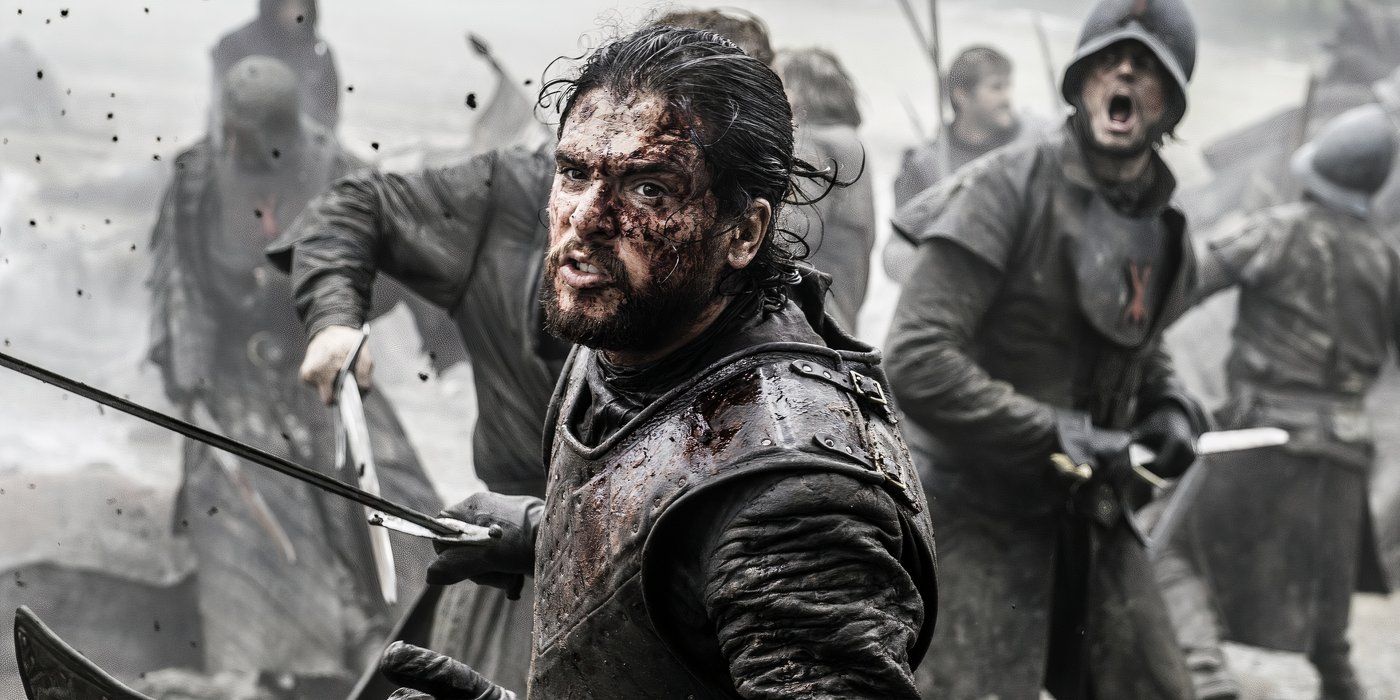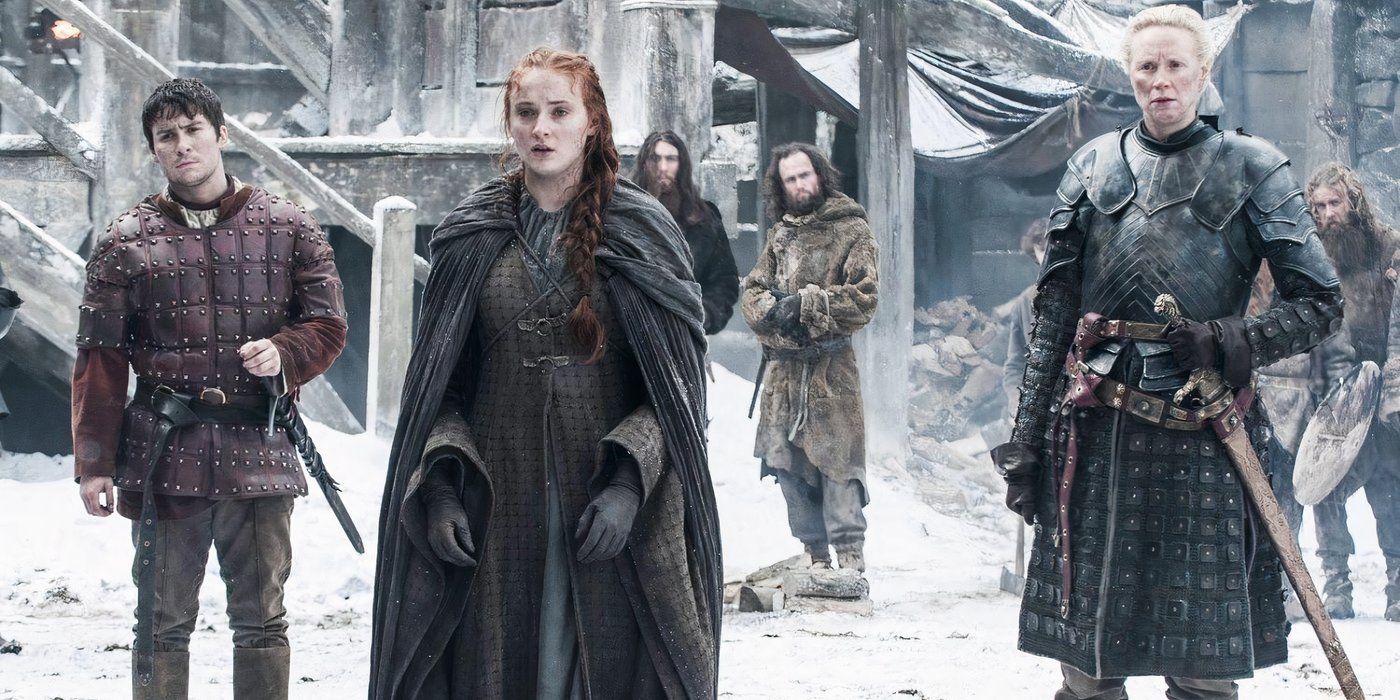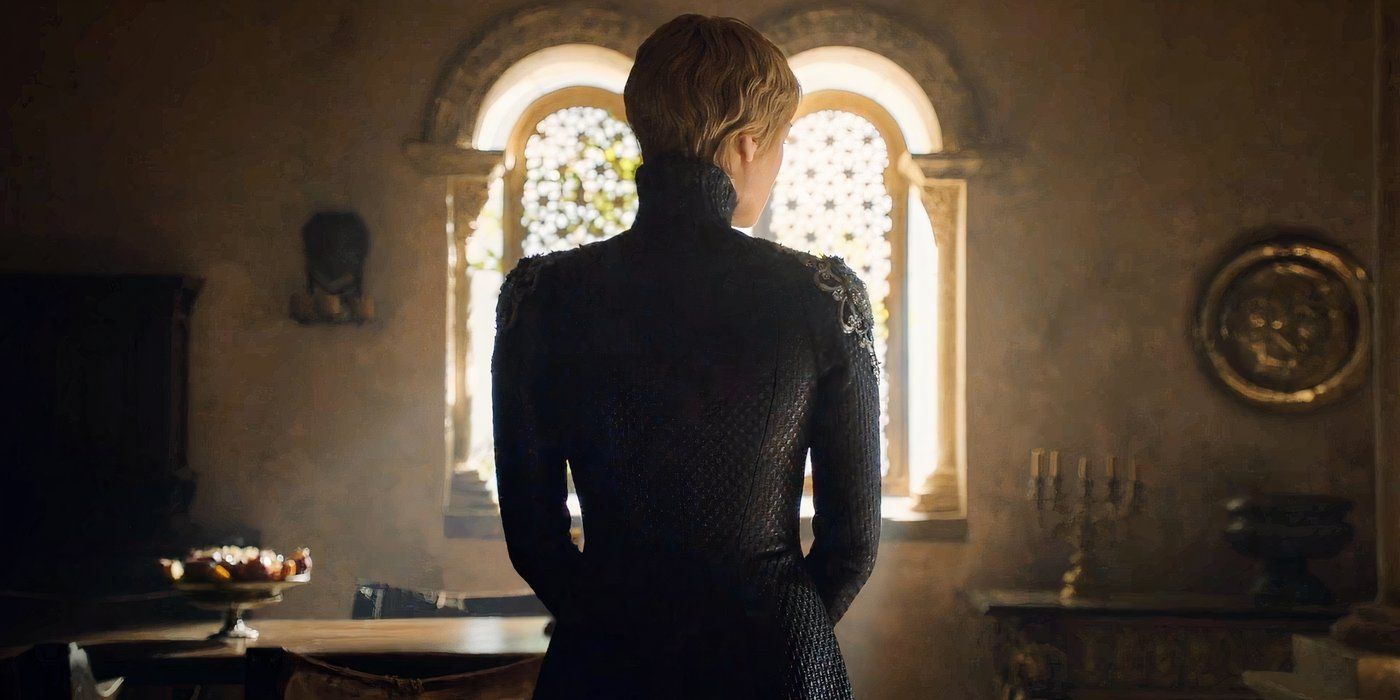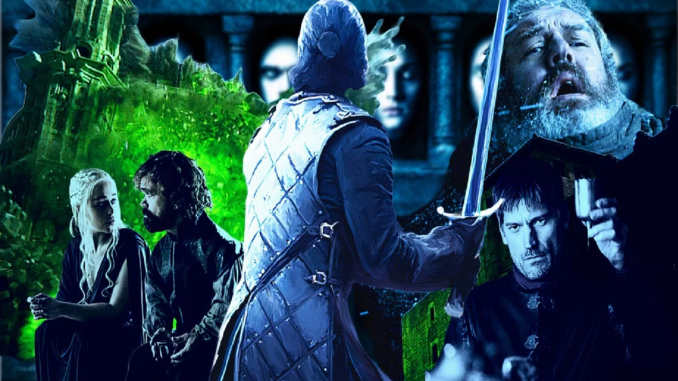
Game of Thrones is one of the most successful shows in TV history, and it has an incredibly controversial ending. The uproar from fans when the final season aired in 2019 was as visceral a reaction as it gets. Many believed the creators ruined one of their favorite shows. For years, HBO had some of its greatest success because of Game of Thrones. The series was one of the most watched and most beloved TV shows, with many believing the show got better with every season. Only something so beloved could evoke such an intense reaction.
Even when the series had an occasional lull in performance, there was never any sense that fans didn’t think it was the greatest thing since sliced bread. For instance, season five was criticized for being slowly paced, and yet that didn’t seem to bother anyone too much because of how well the season ended. However, when focusing on season six, things get a little more interesting. At first, it seemed the overwhelming response to the show’s sixth season was incredibly positive. Yet, more recently, it appears as though fans are often making the case that the downfall of Game of Thrones started with Season 6, in 2016.
Season Six of Game of Thrones Is One of the Best of the Series
No matter how some may try and spin it, season 6 of Game of Thrones was one of the best seasons of the entire series. Between the way it starts, its shocking and emotional middle episodes and its absolutely epic ending, the season deserves credit. Coming out in the show’s prime, season 6 was a big deal as the show had finally caught up to the place where the books left off. Jon Snow’s shocking death at the end of season five was going to mean the end of the road for yet another fan-favorite character. Killing off major characters was nothing new for Game of Thrones up to that point, but without Jon Snow, the show was going to feel very different. The creators saw no reason not to follow the books when it came to killing off characters, so they killed many. However, one thing that hadn’t yet been explored in a show with fantastical elements was what it would be like to bring somebody back.
| Major Characters | Played by |
|---|---|
| Daenerys Targaryen | Emilia Clarke |
| Jon Snow | Kit Harington |
| Tyrion Lannister | Peter Dinklage |
| Cersei Lannister | Lena Headey |
| Sansa Stark | Sophie Turner |
| Arya Stark | Maisie Williams |
| Jaime Lannister | Nikolaj Coster-Waldau |
| Theon Greyjoy | Alfie Allen |
| Bran Stark | Isaac Hempstead Wright |
While some may proclaim now that the decision to bring Jon Snow back to life was a bad choice, fans didn’t seem to respond to it negatively at the time. If they were, they weren’t doing it loudly. From the moment the creators brought Jon Snow back to life, season six was in full swing and heading in some of the wildest directions that the show had ever gone before. Many major events from that point on were fantastic. From Sansa escaping the clutches of Ramsay Bolton, to the truth about Hodor and his epic sacrifice, to those incredible final two episodes, the season was phenomenal. There isn’t a single moment from that season that doesn’t absolutely awe. Jon and Sansa reunite for the first time since the series premiere. Melisandre reveals her true appearance. Sandor Clegane is revealed to be alive. Jaime and Brienne of Tarth reunite with one another. Then there’s obviously the big moment known everywhere as “Hold the Door.” These are just a couple of moments that stand out, but the entire season is one big thrill ride.
Then, of course, there are the big final two episodes. “Battle of the Bastards” and “The Winds of Winter” are two of the best episodes of the entire series. Aside from the obvious big moments, which include the battle for Winterfell and Cersei Lannister’s attack on the Great Sept with wildfire, the episodes are shocking from the first frame to the last. Jon Snow in the middle of a great battle is one of the best shots in TV history. Sansa killing Ramsay with his own dogs is incredibly satisfying. Not to mention, Dany wipes out the slavers with her dragons before the Battle of the Bastards even happens. All of these moments are capped off by learning that winter is finally here, a moment that has been built to for the entire series. “Battle of the Bastards” and “The Winds of Winter” both have a rating of 9.9/10 on IMDB, while season 6 overall has a 94% on Rotten Tomatoes. There’s just no other way to spin it; season six of Game of Thrones is one of the best of the series. There simply must be a reason why many fans today want to lump this incredible season in with the show’s downfall.
Some Fan Arguments Don’t Add Up
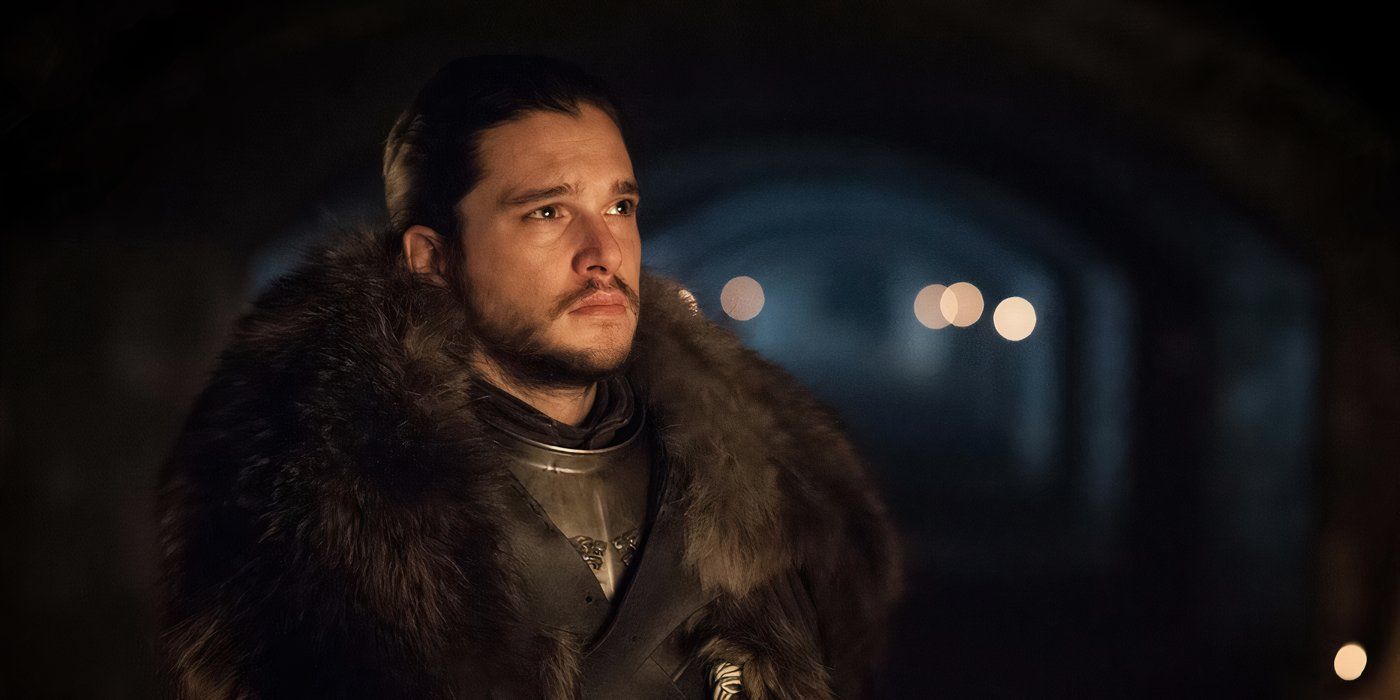
Recently, fans have been ranking their favorite seasons of Game of Thrones or blogging about where things “went wrong” with the show. Shockingly, a lot of these opinions include ranking season six in the middle or saying that the series truly began to fall apart with season six. A few years ago, it was season seven that got completely pulled into the conversation of “bad” seasons when previously, it didn’t seem like anyone had anything bad to say about the penultimate season either. But leaving season seven alone, it’s the argument that season six is the start of the show’s downfall that remains mind-boggling. However, it all starts to make a lot of sense when considering one of the biggest positions people took when attacking the show’s final season.
For months after Game of Thrones ended, all anyone heard about was how HBO needed to fix the series, remake the season, and fire the creators. David Benioff and D.B. Weiss were attacked on social media. It’s truly amazing that the same two people who brought audiences so much joy could also become the source of so much animosity. The main argument that many fans cling to is that the show fell apart because the creators deviated from the source material. Many will still claim that the second Benioff and Weiss didn’t have books to adapt, the show simply fell apart. However, the argument couldn’t be more flawed, as season six was the first season to not be based on a particular book. David Benioff and D.B. Weiss produced the season without anything to base it off of (although they had input from George R. R. Martin). The result was one of the most entertaining seasons of the entire series. Yet, fans often say that the very same creators didn’t know what to do with the show after the source material ran out.
| Season 6 | Air Date |
|---|---|
| Episode 1 – “The Red Woman” | April 24th, 2016 |
| Episode 2 – “Home” | May 1st, 2016 |
| Episode 3 – “Oathbreaker” | May 8th, 2016 |
| Episode 4 – “Book of the Stranger” | May 15th, 2016 |
| Episode 5 – “The Door” | May 22nd, 2016 |
| Episode 6 – “Blood of My Blood” | May 29th, 2016 |
| Episode 7 – “The Broken Man” | June 5th, 2016 |
| Episode 8 – “No One” | June 12th, 2016 |
| Episode 9 – “Battle of the Bastards” | June 19th, 2016 |
| Episode 10 – “The Winds of Winter” | June 26th, 2016 |
The reason this doesn’t add up is that fans who argue that the show went downhill when they stopped following books have to lump season six in with seasons seven and eight to support their argument. There are a number of different reasons why the final season of Game of Thrones didn’t live up to expectations, and many of those reasons are valid. However, when discussing what went wrong, it’s better to exclude the argument about the source material and season 6.
Season Six Doesn’t Fit in With Game of Thrones’ Downfall
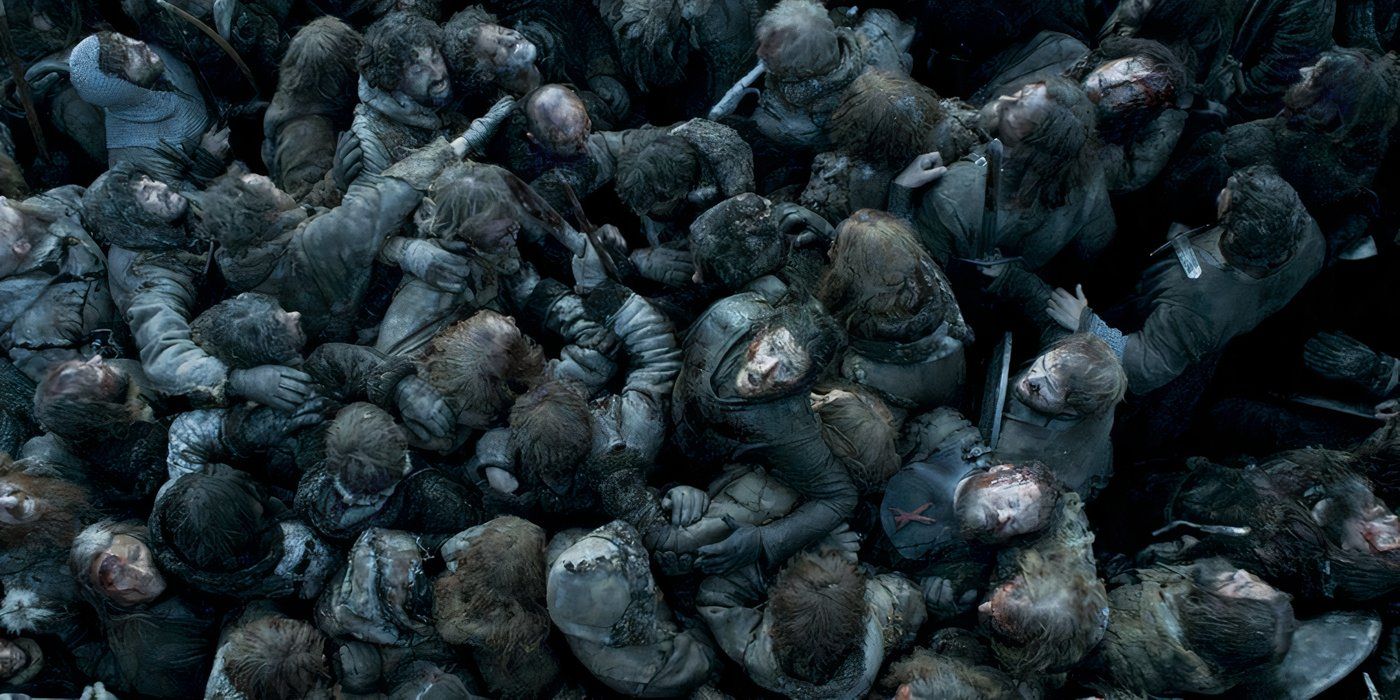
There’s no reason to defend the way Game of Thrones ended. It was underwhelming, and sometimes it was just plain bad. It ultimately paled in comparison to other seasons of the series. David Benioff and D.B. Weiss did not execute an ending that best fit one of the greatest shows of all time, dropping the ball in many instances. However, this does not mean they did not try their best to do so. They are not suddenly bad writers because they didn’t give audiences exactly what they wanted. Because, after all, these are the same writers who, up until that season, gave fans everything that they wanted. What’s most interesting is that people often neglect a more obvious mistake, and it was not made by the writers.
Many fans gloss over how HBO decided to order 7 episodes for Season 7 (3 fewer than the usual 10) and 6 episodes for Season 8 (4 fewer). That’s almost another season’s worth of episodes that would have given the creators more time and space to develop stronger plot and character arcs for their final seasons. Nonetheless, the season that does not fall in the category of being shorter is season six. This, instead, should be used as an example of what Benioff and Weiss can do with a season of television not based on source material. Season six was done well, and shouldn’t be lumped in with the show’s downfall.
